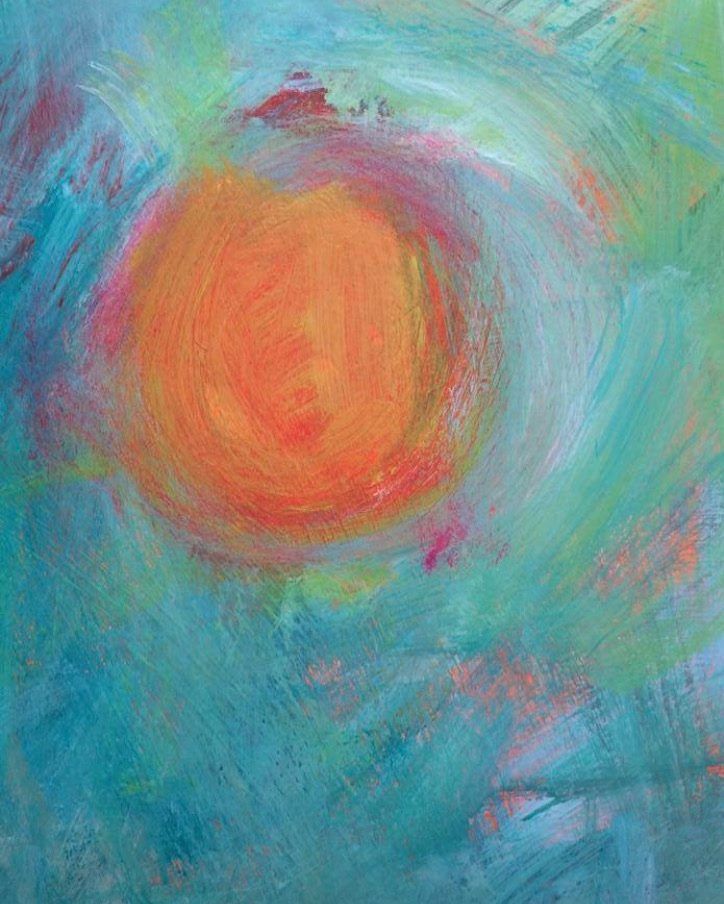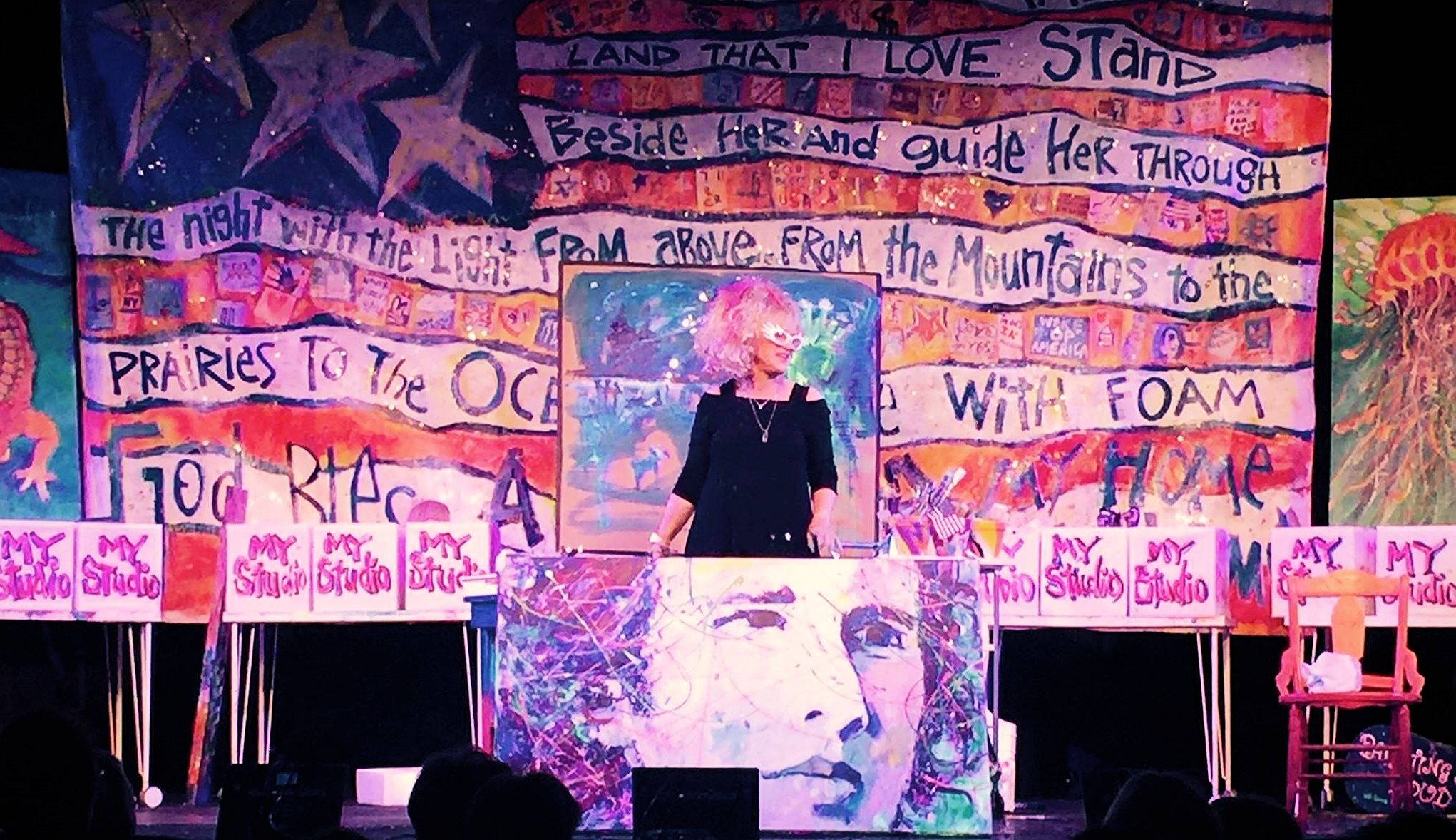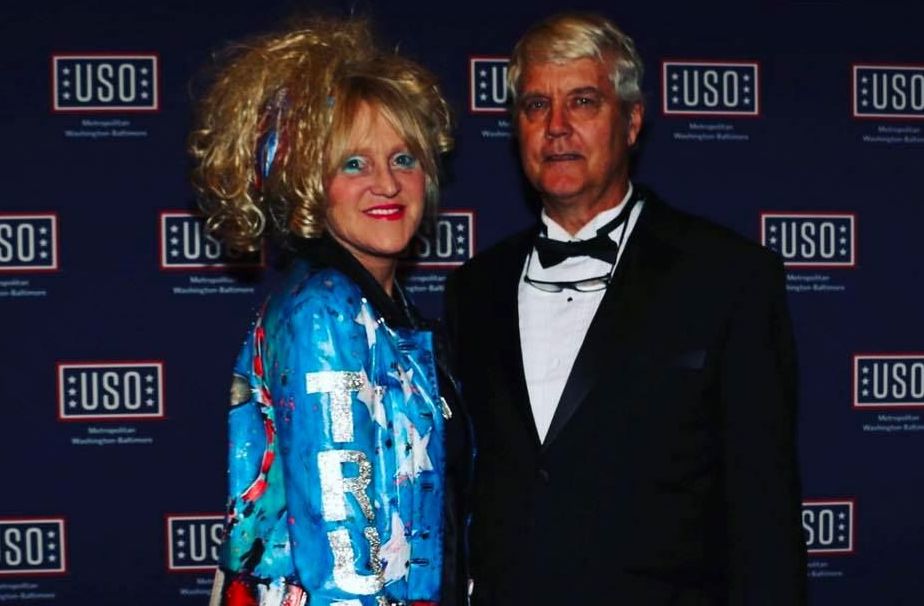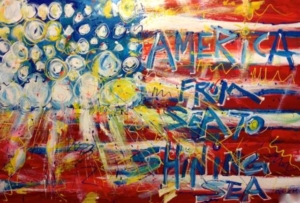 We’re all familiar with Taps. It’s that lonesome bugle call played at military funerals across the country. It originated during the Civil War, but not in conjunction with funerals. Titled Extinguish the Lights, it was used to signal soldiers to put out the lights and go to sleep. And it wasn’t an American invention. It was French and reputed to be Napoleon Bonaparte’s favorite bugle call.
We’re all familiar with Taps. It’s that lonesome bugle call played at military funerals across the country. It originated during the Civil War, but not in conjunction with funerals. Titled Extinguish the Lights, it was used to signal soldiers to put out the lights and go to sleep. And it wasn’t an American invention. It was French and reputed to be Napoleon Bonaparte’s favorite bugle call.
But then came along a Union brigadier general by the name of Daniel Butterfield who rearranged 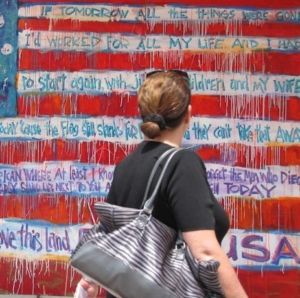 Extinguish the Lights and ordered his 22-year-old bugler, Oliver Wilcox Norton, to sound the revised 24-note call at Harrison’s Landing in Virginia.
Extinguish the Lights and ordered his 22-year-old bugler, Oliver Wilcox Norton, to sound the revised 24-note call at Harrison’s Landing in Virginia.
Then a few months later, a Union captain by the name of John Francis Tidball wanted to bury a fallen soldier with full military honors, but couldn’t risk firing three volleys over the grave for fear of signaling a resumption of fighting to Confederate soldiers gathering nearby. “The thought suggested itself to me to sound Taps instead, which I did,” Tidball later wrote. “The idea was taken up by others, until in a short time it was adopted by the entire army and is now looked upon as the most appropriate and touching part of a military funeral.”
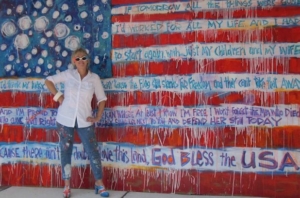 After the Civil War, both Taps and the firing of the three volleys became part of our military funerals as we know it today. And it’s the custom now that Taps is played both on Veterans and Memorial Day.
After the Civil War, both Taps and the firing of the three volleys became part of our military funerals as we know it today. And it’s the custom now that Taps is played both on Veterans and Memorial Day.
Taps has a lot of meaning for me, personally.
A few years ago, I was fortunate to “Paint Out Loud” for an up-and-coming politician. I was asked to paint something patriotic, so I combined 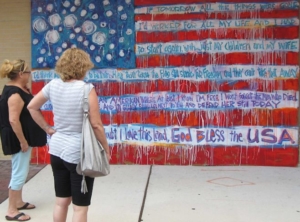 the songs from each of the branches of the United States military and headed to Minneapolis with paint in tow. All I requested was a live bugler to play Taps during the final 30 seconds of my painting performance.
the songs from each of the branches of the United States military and headed to Minneapolis with paint in tow. All I requested was a live bugler to play Taps during the final 30 seconds of my painting performance.
Enter U.S. Marine Bugler Joe Collova.
“Hi Joe. How long will it take you to play Taps?,” I asked.
“Five seconds,” he answered.
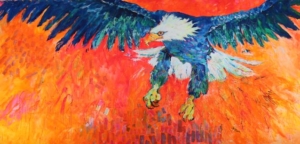 “WOAH….lets go outside and have a little pow wow.” I said.
“WOAH….lets go outside and have a little pow wow.” I said.
Once outside, I shared how Taps was played at JFK’s funeral . . . very very slowly. He said he would give it a try.
Joe performed his “slow Taps” as I completed my painting. It was so beautiful. It has become one of my favorite lifetime memories. 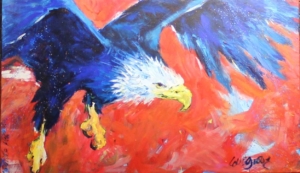 God continue to bless Joe and all the service he has done for the fallen through the years.
God continue to bless Joe and all the service he has done for the fallen through the years.
And so I want to share this email from Joe:
“Leoma, thanks again for the opportunity to honor our US heroes. Your picture brought back a flood of memories of helicopters picking up wounded and dead from the field and the 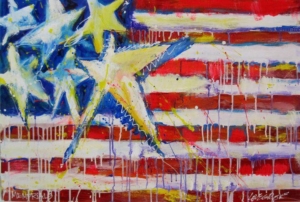 planes flying over dropping ‘the fire of death.’ In conjunction with the music highlighting the branches of service, it stirred up emotions I didn’t realize still existed. I’ve played Taps as a final salute for well over 1,000 funeral and ceremonies, but none affected me like last night. Thank you for the wonderful work you do.”
planes flying over dropping ‘the fire of death.’ In conjunction with the music highlighting the branches of service, it stirred up emotions I didn’t realize still existed. I’ve played Taps as a final salute for well over 1,000 funeral and ceremonies, but none affected me like last night. Thank you for the wonderful work you do.”
No, Joe Collova. Thanks to you for that night and your service.
And here’s a video of me painting to Taps.

